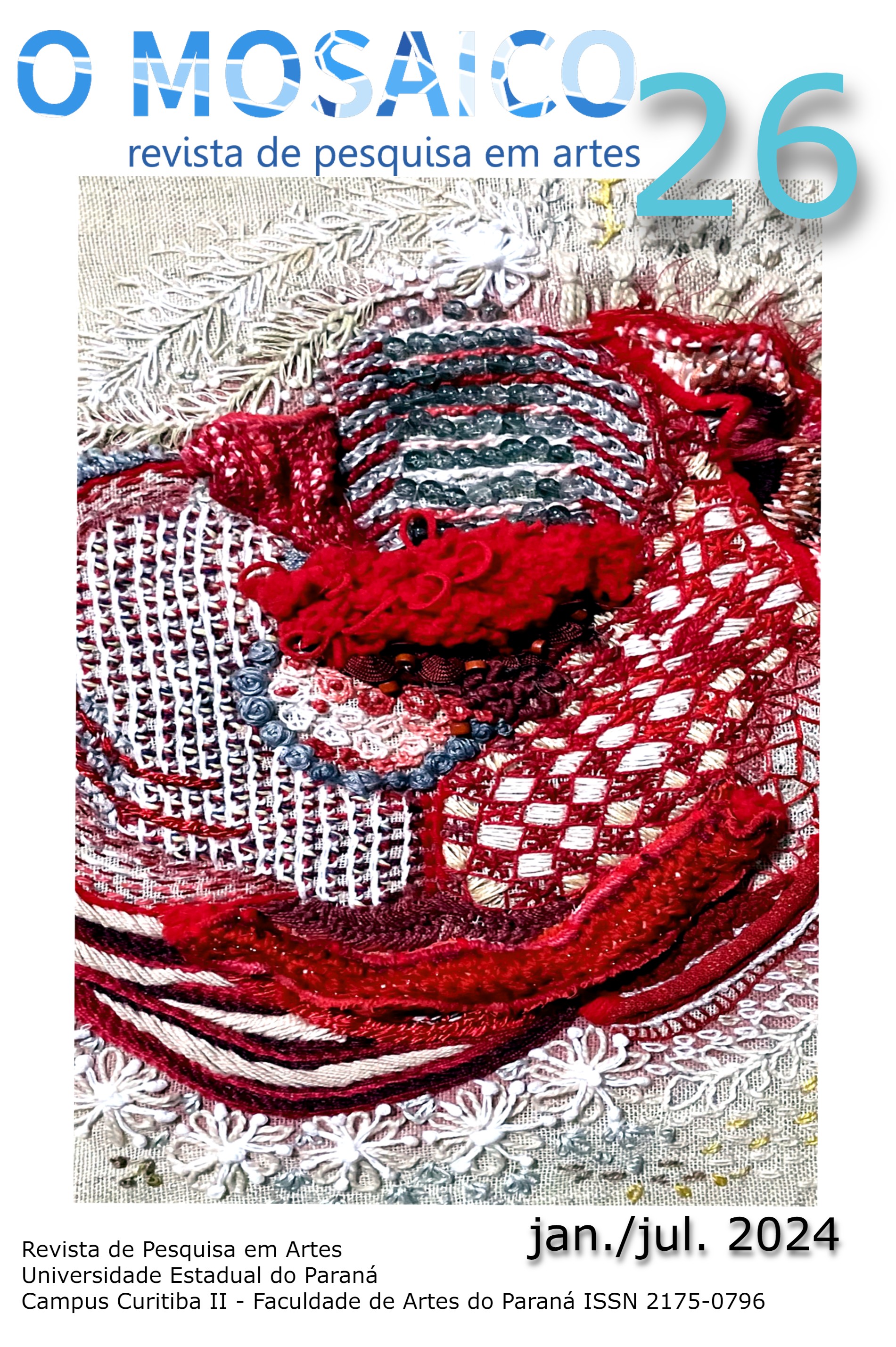CANTO, FALA E EFEITO DE ESTRANHAMENTO NOS ESCRITOS SOBRE TEATRO DE BERTOLT BRECHT
DOI:
https://doi.org/10.33871/21750769.2024.18.1.8069Keywords:
Canto e fala, Efeito de estranhamento, Teatro épicoAbstract
ABSTRACT
Bertolt Brecht is one of the authors responsible for developing a theoretical foundation of what is known as epic theater, which involves all aspects of staging and, in particular, acting. One of the central concepts for the performance in epic theater is the Verfremdungseffekt known as the "estrangement effect" which aims, according to the author, "to give the viewer an analytical and critical attitude towards the unfolding of events". Refusing to engage in catharsis, Brecht establishes means to employ the estrangement effect and one of them is through songs. For the author, the act of singing establishes an atmosphere of absurdity in the scene which is accentuated when the transition from speech to singing is abrupt. Considering the importance of singing in Brecht's work, the central objective of this article is to contribute to the understanding of how the conception and use of songs are related to the development of the principles of acting in the context of the epic theater, especially the estrangement effect. For this purpose, we have made a systematic reading of Brecht's writings translated into Portuguese seeking to identify all the author's quotations referring to singing. Then, we analyzed the quotations from the point of view of the estrangement effect, comparing them with the concept as it appears in other theoretical writings, seeking to make explicit the correlations and possible contradictions that the references may contain.
Keywords: Sing and speech. Estrangement effect. Epic theater
Downloads
Downloads
Published
How to Cite
Issue
Section
License
Copyright (c) 2024 O Mosaico

This work is licensed under a Creative Commons Attribution-NonCommercial-ShareAlike 4.0 International License.
The authors retain the copyright, when licensing their production in the journal O Mosaico, which is licensed under a Creative Commons license. When submitting the work, and upon acceptance, the author assigns his/her copyright for publication in the journal. Readers can download, print and use the articles published in the journal, as long as there is always an explicit mention to the author (s) and to the O Mosaico, and no changes to the original work are allowed. When submitting an article to the journal O Mosaico and after accepting it for publication, the authors allow, without remuneration, to pass the following rights to the journal: the first edition rights and the authorization for the editorial team to transfer, according to their judgment, this article and its meta data to indexing and reference services.

